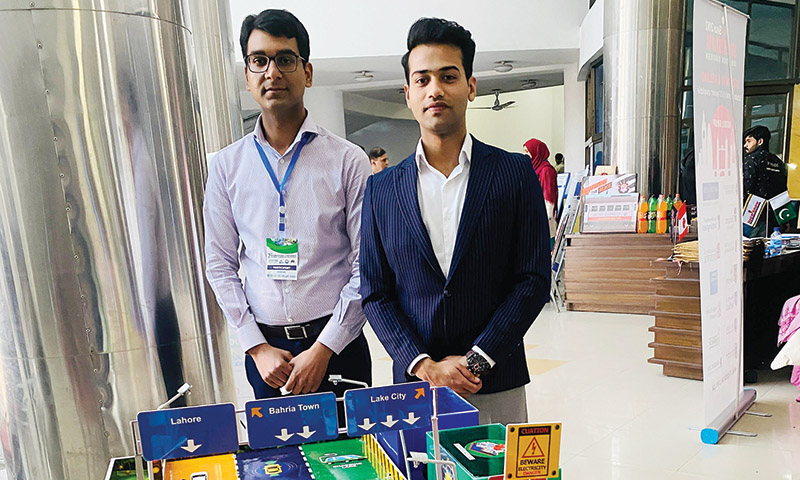Haziq Ahmad and Yasir Javaid, students of Sharif College of Engineering and Technology, recently showcased their groundbreaking Final Year Project at the ICECE 7th International Project and Poster Competition hosted by the University of Engineering and Technology Lahore. Their innovative project, which clinched the prestigious 2nd prize, has captured attention for its visionary approach towards revolutionizing electric vehicle (EV) charging infrastructure.
The core idea behind Haziq and Yasir’s project revolves around the implementation of wireless charging technology embedded within road surfaces, aptly termed as “e-roads.” This concept aims to address the critical challenge of EV charging accessibility and range anxiety by enabling vehicles to charge seamlessly while in motion.
Drawing inspiration from previous attempts in Europe and the UK, where similar initiatives faltered due to inefficiencies in charging mechanisms, Haziq and Yasir proposed a novel solution. Unlike circular pads utilized in earlier iterations, the duo advocated for the adoption of rectangular charging pads, significantly increasing surface area and enhancing charging efficiency.
“We recognized the limitations of existing approaches and sought to innovate by optimizing charging pad design,” explained Haziq Ahmad. “Our research indicated that rectangular pads offer superior performance and reliability, paving the way for more efficient EV charging infrastructure.”
Central to their proposal is the utilization of Class DE converters attached with transmitter coils which are to be embedded in road, paired with a receiver coil installed within EVs to facilitate electromagnetic induction-based charging. This innovative configuration not only ensures efficient power transfer but also minimizes energy wastage, making it a sustainable solution for widespread adoption.
The integration of wireless charging technology into road infrastructure represents a paradigm shift in the EV ecosystem. By leveraging existing road networks, the range anxiety of EV owners can be alleviated easing the transition towards sustainable transportation system.
However, the feasibility of the project is contingent upon the availability of long stretches of road, preferably spanning 15 to 20 kilometers, making it more suitable for highways than urban environments. Despite this limitation, the potential impact on EV adoption and sustainability cannot be understated.
The commendable efforts of Haziq and Yasir have garnered recognition beyond academic circles, with their project securing funding from the Pakistan Engineering Council. This endorsement underscores the project’s viability and positions it as a pioneering initiative in the realm of sustainable transportation infrastructure.
Haziq Ahmad and Yasir Javaid’s innovative approach to EV charging infrastructure exemplifies the spirit of ingenuity and problem-solving ingrained within the engineering community. Their project not only addresses existing challenges but also paves the way for a greener, more sustainable future in Pakistan’s automotive landscape.







